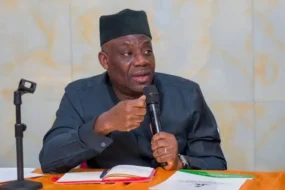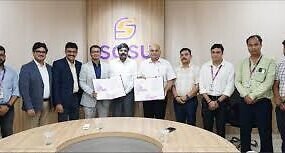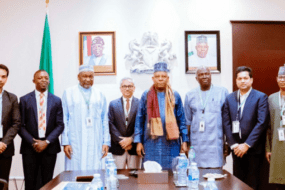A new wave of education innovation is sweeping across Africa as 12 promising startups have each secured $100,000 in non-equity funding through the Mastercard Foundation EdTech Fellowship, delivered in partnership with Nigeria’s Co-Creation Hub (CcHUB). The announcement, made on May 27, marks the launch of the programme’s third cohort and showcases an encouraging shift towards gender balance, with half of the selected startups led by women.
With a bold focus on accessible, high-impact learning tools, the new cohort is set to tackle some of the continent’s most urgent educational challenges. Their solutions range from AI-based learning platforms and virtual science labs for rural schools to tools focused on digital financial literacy. By designing scalable, locally relevant innovations, these ventures are not only reimagining how education is delivered but also who gets to benefit from it.
“As we welcome our third cohort, we are thrilled by the innovative and high-impact solutions these startups are bringing forward,” said Nissi Madu, Managing Partner at CcHUB. “Our aim is to equip young people with the skills needed to thrive and lead in a rapidly evolving world.”
Expanding Impact, Deepening Inclusion
Since its inception, the Mastercard Foundation EdTech Fellowship has impacted over 676,000 learners across Nigeria. Children and youth—who make up 84% of the beneficiaries—have been at the centre of its mission. Importantly, 53% of these learners are female, reinforcing the programme’s commitment to inclusive education.
CcHUB’s rigorous selection process for the 2025 cohort reflects the rising interest in education-focused technology across the continent. Startups selected this year include AI Teacha, Blue and Sand, Cloudnotte, FlexiSAF (Distinction), HiPrep Online, I-Train Africa, Kryptr, Mavis Computel, Smart Steward Academy, Tespire, Sproutly Inc., and VarsityScape.
The six-month accelerator programme includes mentoring from industry experts, capacity building, and network development support. Beyond the initial grant, each startup will continue to receive guidance for an additional year to help ensure long-term impact and sustainability.
“The Fellowship has been instrumental in our growth,” said Louisa Olafuyi, Co-founder of Kunda Kids, a startup from the inaugural cohort. “It helped us better meet user needs and make our content more engaging and safe for families.”
A Vision for Scalable, Inclusive Learning
Beyond funding, the initiative is about fostering education solutions that leave no one behind—including out-of-school youth often overlooked in formal systems. According to Rodwell Mangisi, Acting Director at the Mastercard Foundation Centre for Innovative Teaching and Learning, designing with users in mind remains essential: “It is when we design with the end user in mind that the business case for the solution is more scalable, sustainable and impactful.”
Another alumnus, Frank Williams, CEO of Lingawa, credited the Fellowship with helping his team secure $1.1 million in pre-seed funding and achieve their strongest sales performance yet. “We’re excited to see how the new Cohort 3 will continue to transform education in Nigeria,” he said.







One reply on “EdTech Startups Win Big as CcHUB Fuel Learning Revolution”
[…] Africa, held annually in Morocco, is widely regarded as the largest tech and startup event in Africa. It draws investors, technology giants, government policymakers, and startups from […]